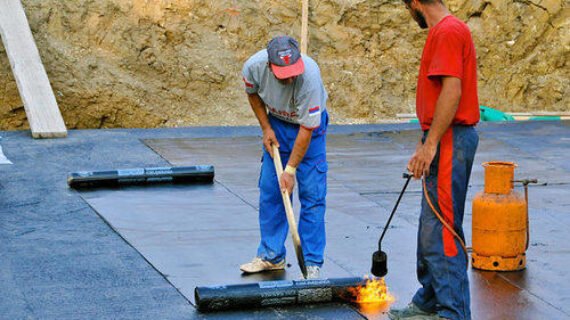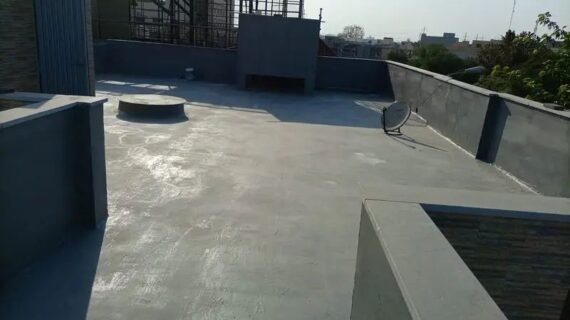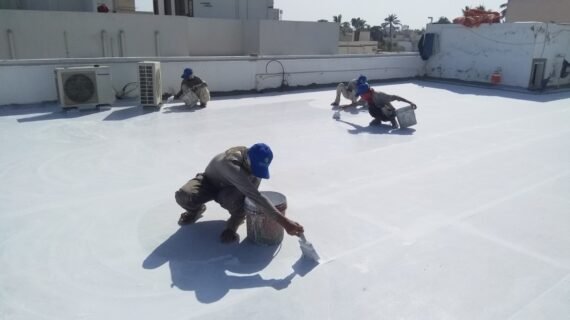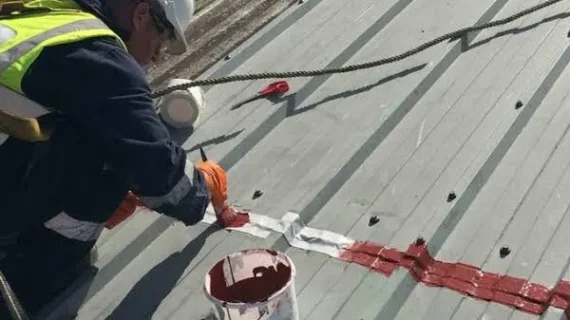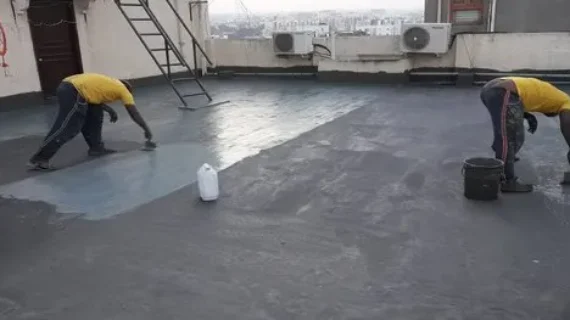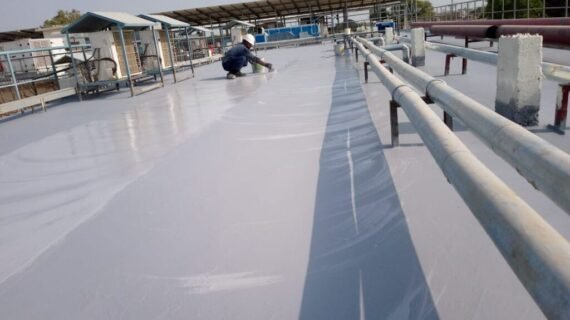Geo Textile Manufacturer in Pakistan: Revolutionizing the Construction Industry
Pakistan, a country with abundant natural resources and a thriving building industry, has seen incredible growth in the production of geo-textiles. In civil engineering and building projects, geo-textiles are a form of synthetic textile material used for drainage, soil stabilisation, and erosion prevention. Pakistan has developed into a centre for the production of geo-textiles, serving both domestic and foreign markets, thanks to its varied topography and development of its infrastructure. This blog article will examine the import of geo-textile production in Pakistan and its effects on the building sector.
The Development of Geotextile Production in Pakistan
Manufacturing of geotextiles has significantly increased in Pakistan in recent years for a variety of reasons. First off, the government’s emphasis on infrastructure development and the construction sector has fostered an atmosphere that is favourable for growth and investment. For instance, the China-Pakistan Economic Corridor (CPEC) project has made it possible for geo-textile producers to take part in significant infrastructure projects.
Second, the accessibility of raw materials is crucial to the development of the sector. The main component required to make geotextiles, polypropylene, is widely available in Pakistan. Due to the stable supply chain and less dependency on imports, it is a desirable location for investors in the industry.
Benefits of Geo-textiles in Construction.
Geo-textiles are in high demand in the construction industry because they have many advantages over conventional building materials. Among the main advantages are:
Soil Erosion
On slopes, riverbanks, and embankments, geo-textiles are used to control soil erosion. The low risk of erosion and continued stability of the construction are made possible by their high tensile strength and permeability, which hold onto soil particles while enabling water to pass through.
Soil Stabilization
Geo-textiles improve soil stability by serving as a barrier between different soil layers. They evenly distribute loads, enhance soil compaction, and stop fine and coarse particles from mixing, which increases bearing capacity and decreases settlement.
Drainage Systems
Geo-textiles are frequently employed in drainage applications, or drainage systems. They serve as a filter, permitting the passage of water while obstructing the movement of tiny soil particles. This aids in the effective removal of extra water, prevents waterlogging, and preserves the structural integrity of the building.
Reinforcement
Strong soil structures, such as soft soils or subgrades with low bearing capacity, are reinforced with geotextiles. They provide the soil more strength, making it able to support heavy loads and preventing the need for costly excavation or replacement.
Quality Standards and Export Potential
Pakistan’s geotextile manufacturing sector has achieved tremendous progress in upholding global quality requirements. Manufacturers follow strict quality control procedures to guarantee that their goods fulfil the necessary requirements and standards. Pakistani geo-textiles have gained recognition and acceptance in the international market thanks to this dedication to quality.
Geo-textiles made in Pakistan have a huge export market. Pakistani manufacturers enjoy a competitive advantage in terms of transportation and logistics thanks to the nation’s strategic location and close proximity to important markets, such as the Middle East and Central Asia. Additionally, the affordability of locally produced geo-textiles makes them a desirable option for customers worldwide.
Promoting Sustainable Development
An environmentally beneficial substitute for conventional building materials is geotextiles. By lowering the use of natural resources like aggregates and soil and lowering trash production, their utilisation encourages sustainable growth. In addition, geo-textiles last longer than traditional materials do, which over time lowers maintenance and replacement expenses.
By adopting sustainable practises like recycling and waste management, the geotextile manufacturing sector in Pakistan is helping to preserve the environment and lessen the ecological impact of building initiatives.
Research and Development in Geo-textile Manufacturing
Pakistani geotextile producers have been spending money on R&D to be competitive in the international market. Advanced geo-textile materials and methods have been developed as a result of partnerships between business professionals, academic institutions, and governmental organisations. These developments include the use of recycled materials for eco-friendly manufacturing, the use of nanotechnology to improve the mechanical properties of geotextiles, and the creation of tailored solutions to satisfy particular project requirements.
The geo-textile manufacturing sector in Pakistan is constantly developing and refining its goods by putting a strong emphasis on research and development. This not only improves the nation’s standing in the world market but also creates new possibilities for growth and innovation.
Capacity Building and Skill Development
Pakistan has given priority to capacity building and skill development activities to fulfil the rising need for qualified people in the geotextile manufacturing industry. To improve the technical proficiency of employees, engineers, and designers working in the sector, training programmes and workshops are held. These courses address a range of geotextile production topics, such as material choice, design considerations, installation methods, and quality assurance procedures.
In addition to ensuring the manufacture of high-quality geo-textiles, capacity building initiatives also help to create jobs and advance the workforce as a whole. Pakistan increases its competitive advantage and promotes long-term industry growth by developing a trained labour force.
Government Support and Policies
Through encouraging laws and incentives, the Pakistani government has been actively promoting the production of geotextiles. Investment in the sector has been boosted by the creation of special economic zones, tax concessions on imported machinery, and financial aid programmes for technological advancements. In order to encourage technology transfer and knowledge sharing, the government has also facilitated partnerships between regional industries and foreign partners.
Such assistance from the government has improved the business climate for Pakistani geo-textile producers, fostering economic growth and luring foreign direct investment.
Challenges and the Way Forward
Although Pakistan’s geo textile manufacturer in pakistan sector has made impressive strides, there are still some issues that need to be resolved. Several of these difficulties include:
Lack of Awareness
It’s important to educate architects, engineers, and construction workers about the advantages and uses of geo-textiles. The cost-effectiveness and long-term benefits of utilising geo-textiles in construction projects should be made known to stakeholders through information dissemination and education campaigns.
Standardization
To preserve quality and reputation, it is crucial to provide uniformity and standardisation in the manufacturing and testing of geo-textiles. Establishing industry standards and norms can be aided by cooperation between producers, regulatory agencies, and academic institutions.
Market Expansion
Even if Pakistani geo-textiles are becoming more well-known on the global market, more work needs to be done to enhance export potential and investigate new markets. Market expansion can be facilitated by taking part in international trade shows, enhancing marketing plans, and establishing solid business networks.
Conclusion
The manufacturer of geotextiles in Pakistan has revolutionised the building sector by bringing cutting-edge drainage, erosion control, and soil stabilisation techniques. Pakistan has established itself as a prominent player in the global geo-textile manufacturing landscape thanks to its expanding market demand, adherence to international quality standards, and dedication to sustainable development.
The geo-textile business in Pakistan is positioned for even greater success as the construction sector continues to grow and diversify. Manufacturers in the nation are well-positioned to meet domestic and international demand while promoting sustainable development in the construction industry thanks to ongoing infrastructure projects and growing awareness of the advantages of geo-textiles.
2222


